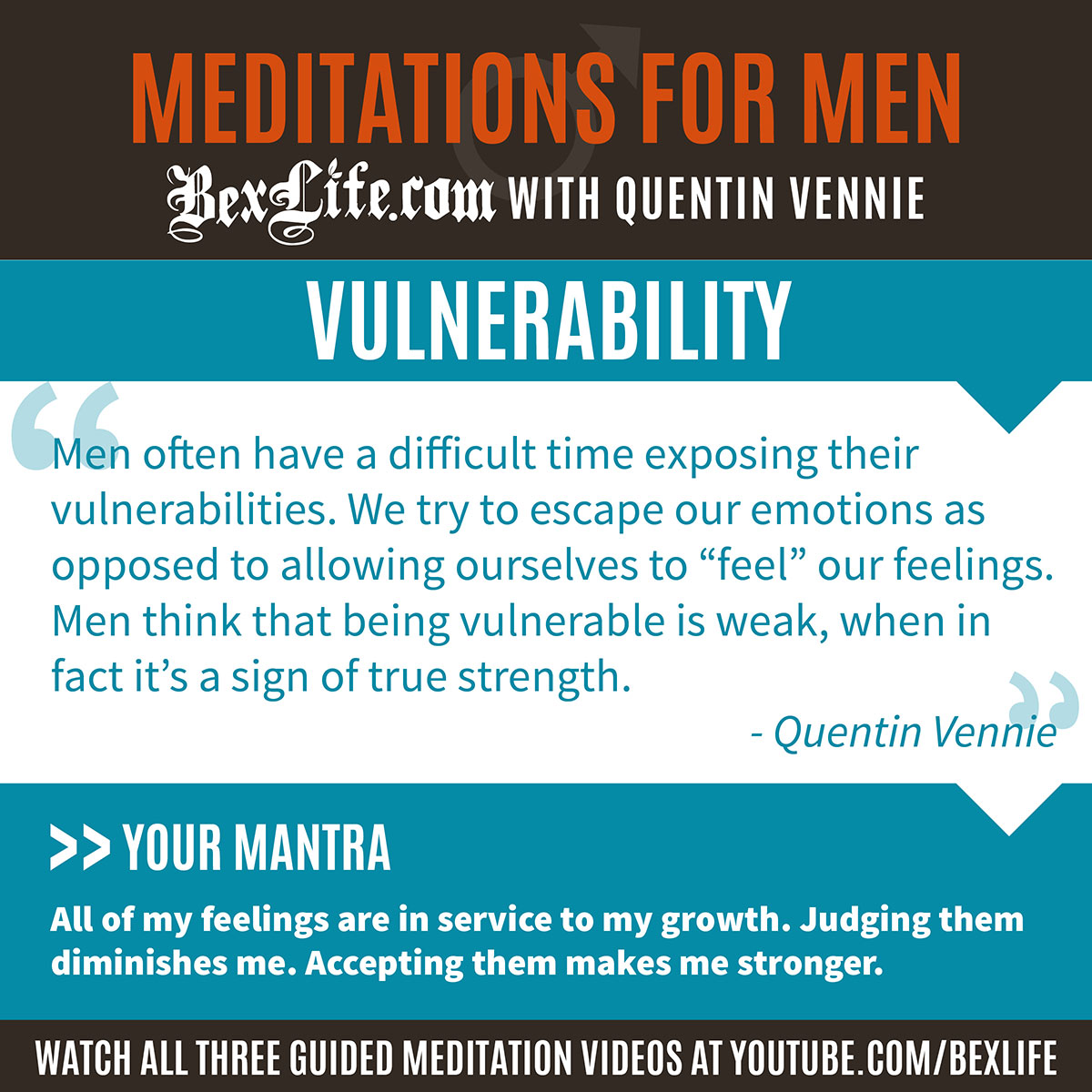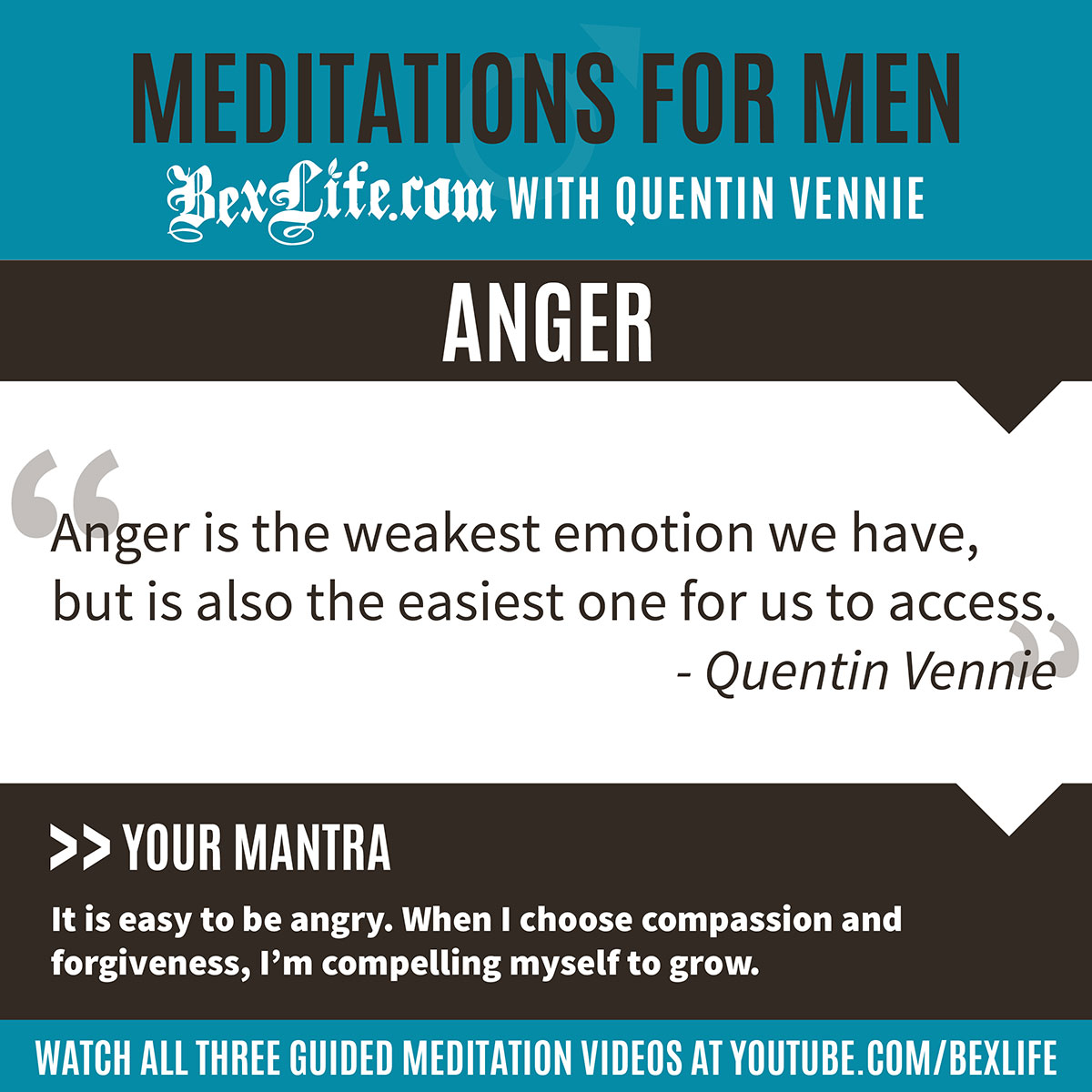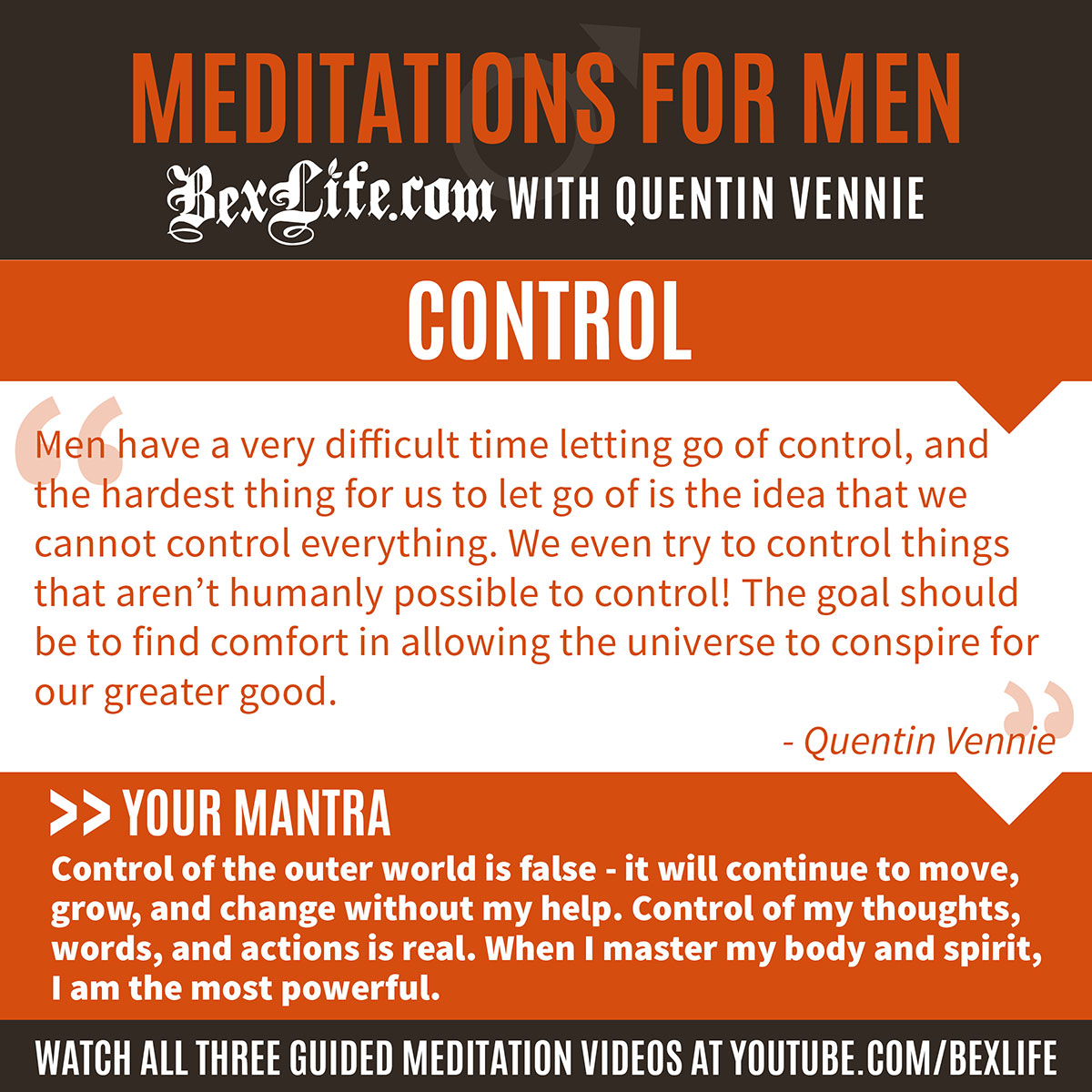
If you consider yourself at all part of the self-help community, you’re probably very familiar with the trending conversations about meditation and how it can be a powerful tool in achieving long sought-after goals of success in personal and business relationships as well as overall contentedness.
However, if you’re a man (or someone who loves a man), you’re probably also familiar with the buzz surrounding new age spirituality, meditation, and masculinity. Is inner-work an inherently feminine practice? For those of you familiar with the history of popular self-help practices like meditation, you already know that the answer is an absolute “NO!” But as meditation gains popularity in the Western world and North America, largely with the help of celebrity gurus like Oprah Winfrey and Deepak Chopra, it seems to only be reaching their female audiences.
Meditation is a great tool for regular Joes, too, so why aren’t guys picking it up faster and in greater numbers?
According to author of Strong in the Broken Places and wellness advocate, Quentin Vennie, it’s because a lot of men just want a tool they can use in their real lives. They want teachers to speak to them in direct, no-nonsense language that they understand, and the messages they’re currently seeing are in most part directed toward women and lend themselves more to being touchy-feely rather than practical.
So I collaborated with Quentin to create a set of three meditation videos that cover common issues that a lot of men struggle with in their daily lives – vulnerability, anger, and control.
Please take a few minutes to try them out for yourself or share them with the men in your life. He’ll thank you for it!



Check out my entire You Have 4 Minutes for Meditation series of short meditations for beginners by clicking here.
Stay blissed in! xx

DISCLAIMER: This post/video is designed for educational and/or informational purposes only and should not be used in any other manner. This information is not intended to substitute informed medical advice. You should not use this information to diagnose or treat a health problem or disease without consulting with a qualified health care provider. A consultation with your health care professional is the proper method to address your health concerns. You are encouraged to consult your health care provider with any questions or concerns you may have regarding your condition.






